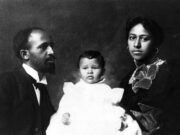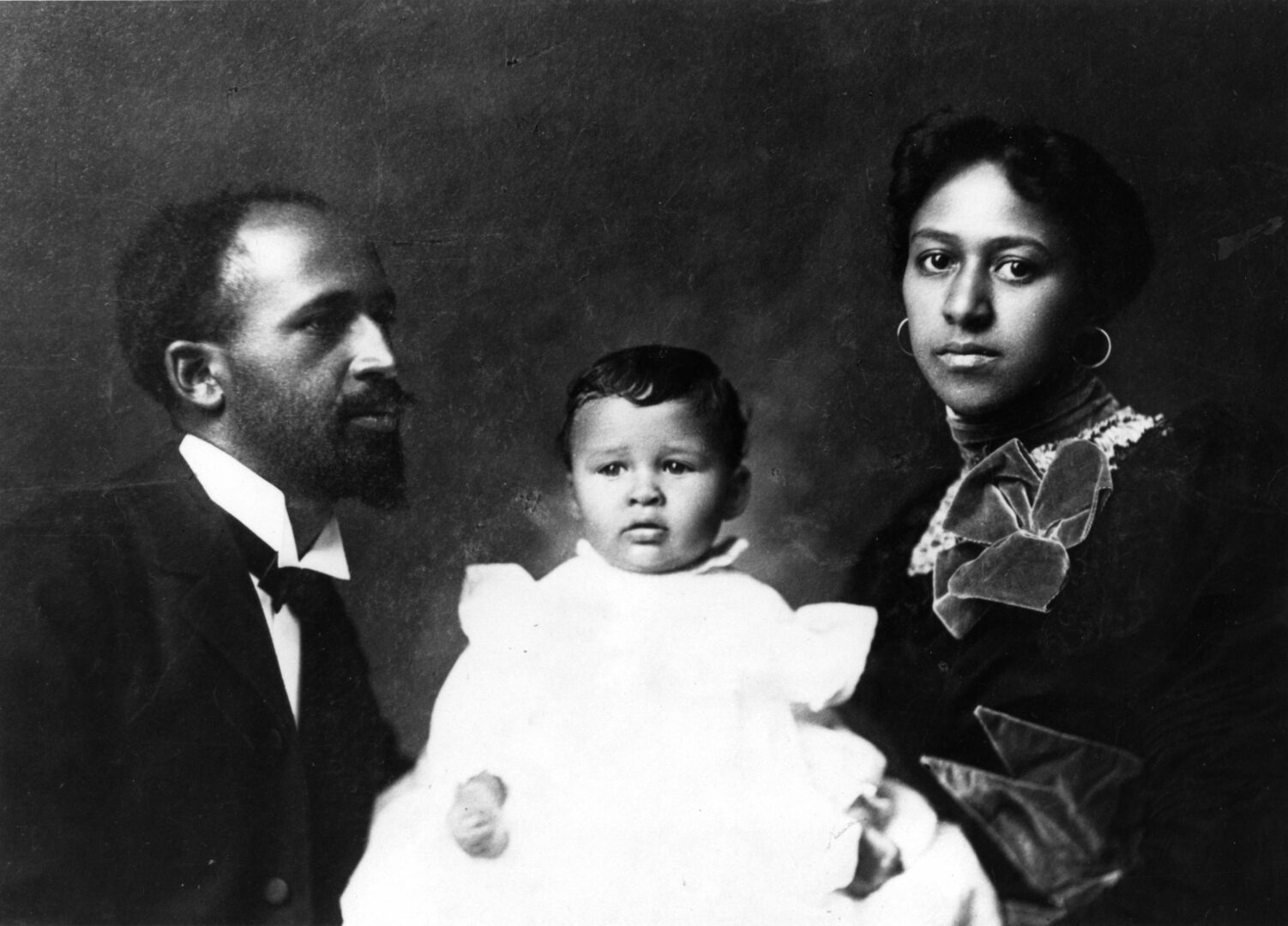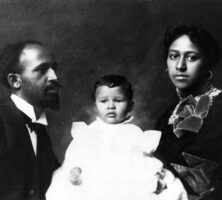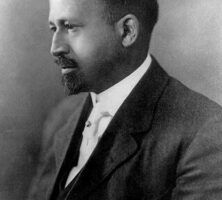William Edward Burghardt Du Bois (1868-1963) was an African American educator, historian, sociologist, and social activist who poignantly addressed the issues of racial discrimination, Black social problems, and world peace during the first half of the twentieth century.
During two extended stays in Atlanta, 1897-1910 and 1934-44, Du Bois contributed immensely to the Black intellectual and activist community and produced a number of studies that explored the social, economic, and political conditions of African Americans in Georgia and across the United States.
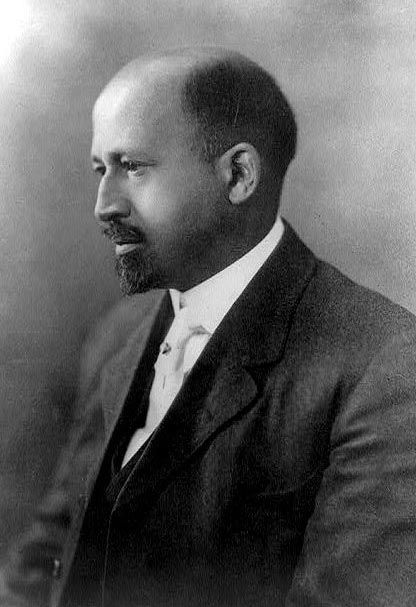
In Georgia, Du Bois wrote some of his best-known works, including The Souls of Black Folk, Dusk of Dawn, and Black Reconstruction, and established a journal dealing with the African American experience called Phylon. (Phylon resumed publication in 2015 as an online journal, a collaborative effort of the Atlanta University Center’s Woodruff Library and Clark Atlanta University.) Du Bois’s life and work in Georgia improved the lives of Blacks in the state and across the country while educating all races about the contributions of African Americans to American society.
Early Years
Du Bois was born in the small New England hamlet of Great Barrington, Massachusetts. His mother, Mary Burghardt, was a descendent of the Burghardt clan, and her family had deep roots in the Great Barrington community. With the support of his mother, extended family, school principal, and local community, Du Bois enjoyed a relatively comfortable childhood and succeeded in school.
In 1885 Du Bois attended Fisk University in Nashville, Tennessee. There he was exposed to the harsh realities of Jim Crow segregation and the social and economic residuals of slavery that continued to keep most Blacks in a squalid state of poverty and impotence in the South. At Fisk, Du Bois immersed himself in his studies, focusing on philosophy, history, and law. It was at this point that he began to form his idea of the “talented tenth”—a cadre of college-educated Blacks who would break down the institutional structures of American racism while elevating their race to a pinnacle of respect in the world community. Du Bois graduated from Fisk in 1888 with a B.A. degree and set his sights on Harvard University in Cambridge, Massachusetts.
Du Bois enrolled in Harvard in the fall of 1888. He entered as a junior because Harvard would not accept all of his Fisk credits. He graduated cum laude in 1890, receiving a B.A. degree. In 1891 he received an M.A. degree in history from Harvard, and between 1892 and 1894 he studied in Germany at the University of Berlin. After returning to the United States in 1894, Du Bois accepted a professorship at Wilberforce University in Ohio and completed his dissertation on the African slave trade, receiving a Ph.D. from Harvard in 1896.
Du Bois left Wilberforce in 1896 and accepted a position as an assistant instructor at the University of Pennsylvania, where he embarked on a sociohistorical urban study of African Americans in the Seventh Ward of Philadelphia, The Philadelphia Negro (1899). This study remains a pioneering work in urban sociology.
Du Bois in Georgia, 1897-1910
Before publishing The Philadelphia Negro, Du Bois accepted a faculty position at Atlanta University (later Clark Atlanta University) in 1897. Atlanta University president Horace Bumstead brought Du Bois to Atlanta to establish a sociology program and to develop the university’s curriculum. Du Bois’s major work to come out of this relationship was his famous series of conferences and studies on Black social conditions called the Atlanta University Studies.
The first years Du Bois and his wife, Nina, spent in Atlanta were not happy ones. In the spring of 1899 their two-year-old son, Burghardt, died of diphtheria. The Du Boises later believed that Burghardt might have lived had appropriate medical facilities and services been available for Blacks in Atlanta. Du Bois paid tribute to Burghardt in The Souls of Black Folk in a chapter entitled “The Passing of the First Born.” In this soliloquy to his son, Du Bois’s emotional turmoil and his feelings about Georgia are expressed. “I held him in my arms, after we sped far away from our Southern home,—held him, and glanced at the hot red soil of Georgia and the breathless city of a hundred hills, and felt a vague unrest.”
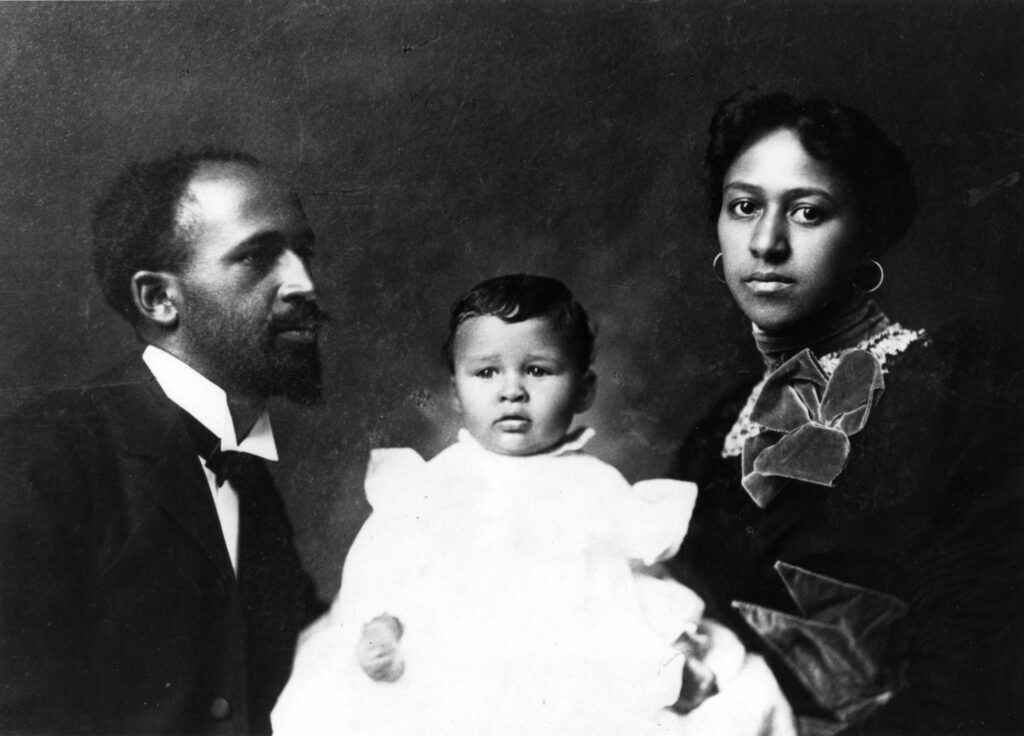
In that same year a Black man named Sam Hose was lynched in Newnan after he was accused of killing his landlord and raping the landlord’s wife. On his walk to the Atlanta Constitution office to submit a statement on the brutal lynching, Du Bois heard that Hose’s knuckles were on display in a local Atlanta store. Du Bois then turned around and headed back to Atlanta University. It was after this event that Du Bois questioned his methods of scientific research as the sole method of agitation for equality. He stated, “Two considerations thereafter broke in upon my work and eventually disrupted it: first, one could not be a calm, cool, and detached scientist while Negroes were lynched, murdered, and starved; and secondly, there was no such definite demand for scientific work of the sort I was doing.”
During his early years at Atlanta University, Du Bois published significant studies that examined Black conditions in the state. In 1901, under the auspices of the U.S. Department of Labor, he published The Negro Landholder of Georgia, in which he examined how in only a generation after slavery, Blacks had accumulated more than a million acres of land. In 1904 he published Some Notes on Negro Crime, Particularly in Georgia. Du Bois and his team of researchers concluded that Georgia’s prison industrial complex was financed by the incarceration of Black men and that laws were applied to Blacks in blatantly discriminatory ways. They also argued that while Black crime decreased between 1895 and 1903, lengthy sentences for Blacks made it appear that Blacks committed more crimes.
The years from 1905 to 1910 were eventful for Du Bois. During this time, Du Bois rallied support within the polarized Black intellectual community. “Radical” Black intellectuals, with whom Du Bois identified, argued that Blacks should launch legal and scholarly attacks on segregation without hesitation. “Conservative” Black leaders, led by Booker T. Washington in the wake of his “Atlanta Compromise” speech (1895), argued that segregation should be accepted as a necessary evil and that, instead of fighting for social equality, Blacks should endeavor to be economically successful. In 1905 Du Bois founded and served as the general secretary of the Niagara Movement, a group of radical Black intellectuals, and in 1909 he helped found the National Association for the Advancement of Colored People (NAACP). During these years Du Bois also wrote The Souls of Black Folk (1903) and John Brown (1909), and founded two literary magazines, The Moon (1906) and Horizon (1907). The Souls of Black Folk is still considered an important sociological and literary work today.
In 1906 Du Bois penned the poem “A Litany of Atlanta” in response to what he saw and felt when he witnessed the Atlanta race massacre of that year. Afterward he kept a double-barreled shotgun in his home for protection against the white mobs. In 1910 Du Bois left Atlanta University to become director of publications and research for the NAACP in New York, and later that year he founded its monthly magazine, The Crisis. He remained connected to Georgia and affiliated with the Atlanta University Studies until 1914.
Du Bois in Georgia, 1934-1944
In 1934 Atlanta University president John Hope invited Du Bois back to chair the university’s sociology department. During the next decade Du Bois published his seminal Black Reconstruction (1935), which challenged the dominant historiography of the time by arguing that Reconstruction was not a total failure and that Blacks played an important role in democratizing America. While at Atlanta University, Du Bois also published the Black history treatise Black Folk Then and Now (1939) and the autobiographical Dusk of Dawn (1940), and founded a scholarly journal, Phylon (1940). After Hope’s death in 1936, Du Bois found himself at odds with Atlanta University’s power structure. In 1944 he resigned from his position to work again in New York as the director of special research at the NAACP.
Du Bois’s years in Georgia were some of the most productive in his seventy-plus years of scholarship and activism. While he has most often been associated with New England, it was in Georgia and other parts of the South that Du Bois focused much of his studies on Black social conditions. He died in Ghana on August 27, 1963.
In 2000 Du Bois was inducted as a charter member into the Georgia Writers Hall of Fame.


